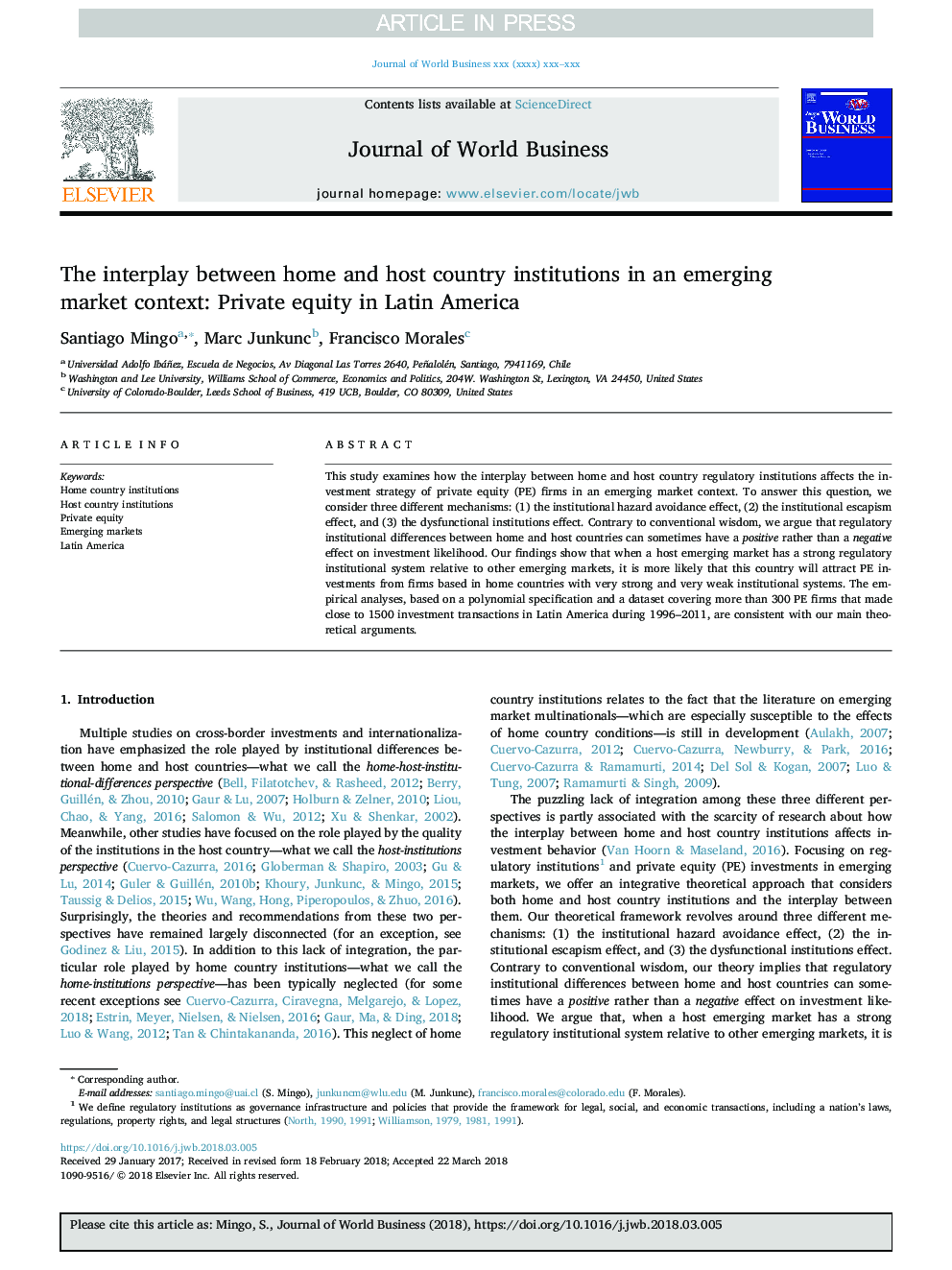| Article ID | Journal | Published Year | Pages | File Type |
|---|---|---|---|---|
| 7413145 | Journal of World Business | 2018 | 15 Pages |
Abstract
This study examines how the interplay between home and host country regulatory institutions affects the investment strategy of private equity (PE) firms in an emerging market context. To answer this question, we consider three different mechanisms: (1) the institutional hazard avoidance effect, (2) the institutional escapism effect, and (3) the dysfunctional institutions effect. Contrary to conventional wisdom, we argue that regulatory institutional differences between home and host countries can sometimes have a positive rather than a negative effect on investment likelihood. Our findings show that when a host emerging market has a strong regulatory institutional system relative to other emerging markets, it is more likely that this country will attract PE investments from firms based in home countries with very strong and very weak institutional systems. The empirical analyses, based on a polynomial specification and a dataset covering more than 300 PE firms that made close to 1500 investment transactions in Latin America during 1996-2011, are consistent with our main theoretical arguments.
Related Topics
Social Sciences and Humanities
Business, Management and Accounting
Business and International Management
Authors
Santiago Mingo, Marc Junkunc, Francisco Morales,
